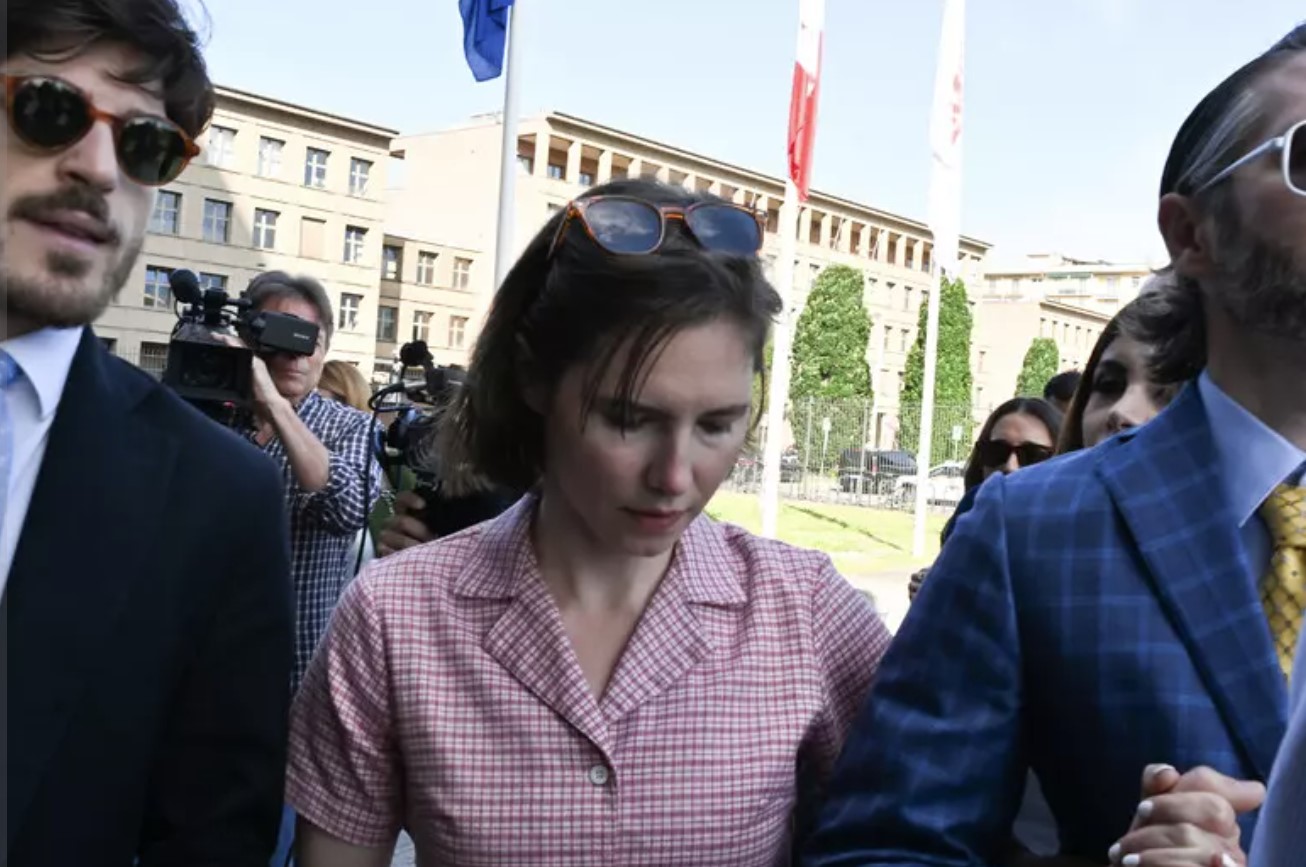The court’s assertion came in explaining its recent rejection of the American’s claim that she was physically coerced into initially identifying her Congolese born friend as the British exchange student’s killer.
Kercher was found dead in their shared flat in the Umbrian capital on November 1, 2007.
“Knox’s indictment of Lumumba was written spontaneously and freely as confirmed by the defendant,” said the Florentine judges in their explanation of the verdict, against which Knox is appealing.
The court upheld a slander sentence against the innocent Lumumba of three years already served.
Knox spent four years in prison before being eventually acquitted of the murder with her then Italian boyfriend Raffaele Sollecito.
Knox and Sollecito were arrested five days after Kercher’s semi-naked and brutalised body was found and convicted by a court of first instance, but this conviction was subsequently overturned.
The appeal sentence was then thrown out by the Court of Cassation, Italy’s supreme court, which ordered a new trial on appeal leading to their re-conviction in 2014.
Knox and Sollecito were eventually acquitted definitively by the supreme court the following year.
Rudy Guede, an Ivorian, was convicted and sentenced to 16 years for the murder.
He was released from prison in November 2021 after serving 13 years.
In February, a court ordered hm to be placed under special surveillance after he was found guilty of beating his ex-girlfriend.
Knox told Sky News a day after being re-convicted of slandering Lumumba on June 5 that she loved Italy and hoped that one day “we will understand each other”.
“I love this country, and I hope that one day we will be really able to understand one another,” said the 36-year-old writer and justice reform campaigner.
She said that she and her legal team would be awaiting the written explanation of the ruling, but they would “certainly” appeal to the supreme Court of Cassation.
“I haven’t slept, I’m really disappointed,” she went on, “I feel sad but I’m determined.
“I have nothing to hide, and I’ll never stop telling the truth.
“I didn’t slander Patrick; I didn’t kill my friend. I will return here every time I have to in order to fight this injustice.”
Knox slammed the allegedly violent questioning session for which Italy was condemned by the European Court of Human Rights for violating her defence rights.
“[It was] the worst experience of my life,” she said.
“They made me think I was mad.”
But after being “unjustly accused for 17 years” and becoming “the most hated girl in the world”, she said she had “survived” and would raise her two young children in such a way as to show them “my strength”.
Knox said she was still resentful at tabloid treatment of her as “Foxy Knoxy” - a soccer nickname - and its delving into allegedly salacious details of her life.
She also said that, as a campaigner for defendants’ rights, she was aware that there have been some 30,000 victims of miscarriages of justice in Italy in the last 30 years.
“My message to those who are unjustly incarcerated is: you are not alone,” she declared.
“There are very tough days, but there are people who want to help you.”
ANSA











